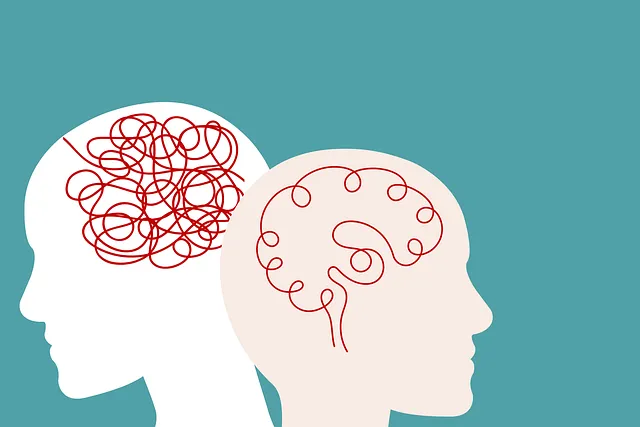Mental wellness group facilitation at Englewood Kaiser Permanente mental health appointment center offers a supportive community for individuals facing similar challenges, enhancing traditional therapy through open dialogue and shared coping strategies. Skilled facilitators use active listening, emotional expression techniques, and Mind Over Matter principles to guide discussions, build trust, and reduce stigma. Risk management planning ensures safety while integrating healthcare provider burnout prevention, contributing to holistic mental wellness management for both facilitators and participants.
Mental wellness group facilitation plays a pivotal role in enhancing care at centers like Englewood Kaiser Permanente’s mental health appointment center. This article explores proven techniques for group facilitators, offering valuable insights into improving participant experiences. From understanding the power of group dynamics to implementing effective communication strategies and creating safe, inclusive spaces, we delve into best practices that promote healing and connection. Learn how structured discussions, icebreakers, and fostering peer support can revolutionize mental health care through group facilitation.
- Understanding the Role of Group Facilitation in Mental Health Care
- – Definition and significance of group facilitation
- – Benefits for participants at Englewood Kaiser Permanente mental health appointment center
- Effective Communication Strategies for Group Facilitators
Understanding the Role of Group Facilitation in Mental Health Care

Mental wellness group facilitation plays a pivotal role in enhancing mental health care services, particularly at centers like Englewood Kaiser Permanente mental health appointment center. Unlike individual therapy sessions, group settings offer a unique environment for individuals to connect with peers facing similar challenges. This sense of community and shared experiences can significantly boost coping abilities and foster social support networks.
Skilled facilitators employ various communication strategies and coping skills development techniques to guide discussions and activities. They create a safe, non-judgmental space where members feel comfortable sharing their stories and insights. Moreover, group facilitation often incorporates burnout prevention strategies for healthcare providers, ensuring that both the facilitators and participants receive the support needed for sustainable mental wellness.
– Definition and significance of group facilitation

Group facilitation plays a pivotal role in enhancing mental wellness, particularly within healthcare settings like the Englewood Kaiser Permanente mental health appointment center. It involves skillfully guiding conversations and activities to foster open dialogue, shared understanding, and collective problem-solving among participants. This collaborative approach not only complements individual therapy but also empowers group members to support one another, creating a safe and supportive environment.
Effective group facilitation techniques, such as those utilized in Stress Management Workshops Organization, can significantly boost self-esteem improvement among individuals grappling with mental health challenges. By facilitating meaningful interactions, facilitators promote active listening, emotional expression, and the exchange of coping strategies. This dynamic process facilitates a comprehensive risk assessment for mental health professionals, enabling them to tailor interventions and ensure every member feels heard and valued.
– Benefits for participants at Englewood Kaiser Permanente mental health appointment center

Facilitating mental wellness groups at Englewood Kaiser Permanente mental health appointment center offers a multitude of benefits to participants. Such group settings foster a sense of community, providing individuals with shared experiences and understanding. This support network can significantly enhance feelings of belonging and reduce instances of isolation often experienced by those dealing with mental health challenges.
Group facilitation techniques, such as encouraging open dialogue using Mind Over Matter Principles, offer valuable opportunities for learning conflict resolution skills and fostering positive interactions. These sessions also serve as a safe space to practice self-care and coping mechanisms, which are essential components in the holistic approach to mental wellness management. Additionally, integrating Risk Management Planning for Mental Health Professionals ensures that facilitators can navigate potential issues effectively, creating an even safer and more beneficial environment for all participants.
Effective Communication Strategies for Group Facilitators

Effective communication is a cornerstone for group facilitators at Englewood Kaiser Permanente mental health appointment center, where they play a vital role in fostering safe and supportive environments. By employing active listening techniques, facilitators ensure every member feels heard and valued, encouraging open dialogue about their experiences with mental illness. This approach helps to build trust and create a sense of community, crucial for reducing the Stigma associated with Mental Illness.
Additionally, facilitators must be adept at managing risk assessment and implementation of risk management planning, as these are essential components of ensuring client safety during group sessions. They should be able to identify warning signs, de-escalate potentially volatile situations, and promptly refer members to appropriate resources or professional help when needed, thereby enhancing the overall effectiveness of Mental Illness Stigma Reduction Efforts.
Group facilitation plays a pivotal role in enhancing mental wellness at institutions like the Englewood Kaiser Permanente mental health appointment center. By fostering collaborative communication and support, facilitators create safe spaces for participants to share experiences, build connections, and develop coping strategies. This article has explored the benefits of this approach and provided insights into effective communication techniques, highlighting the potential for group facilitation to revolutionize mental health care in a setting like Englewood Kaiser Permanente.






